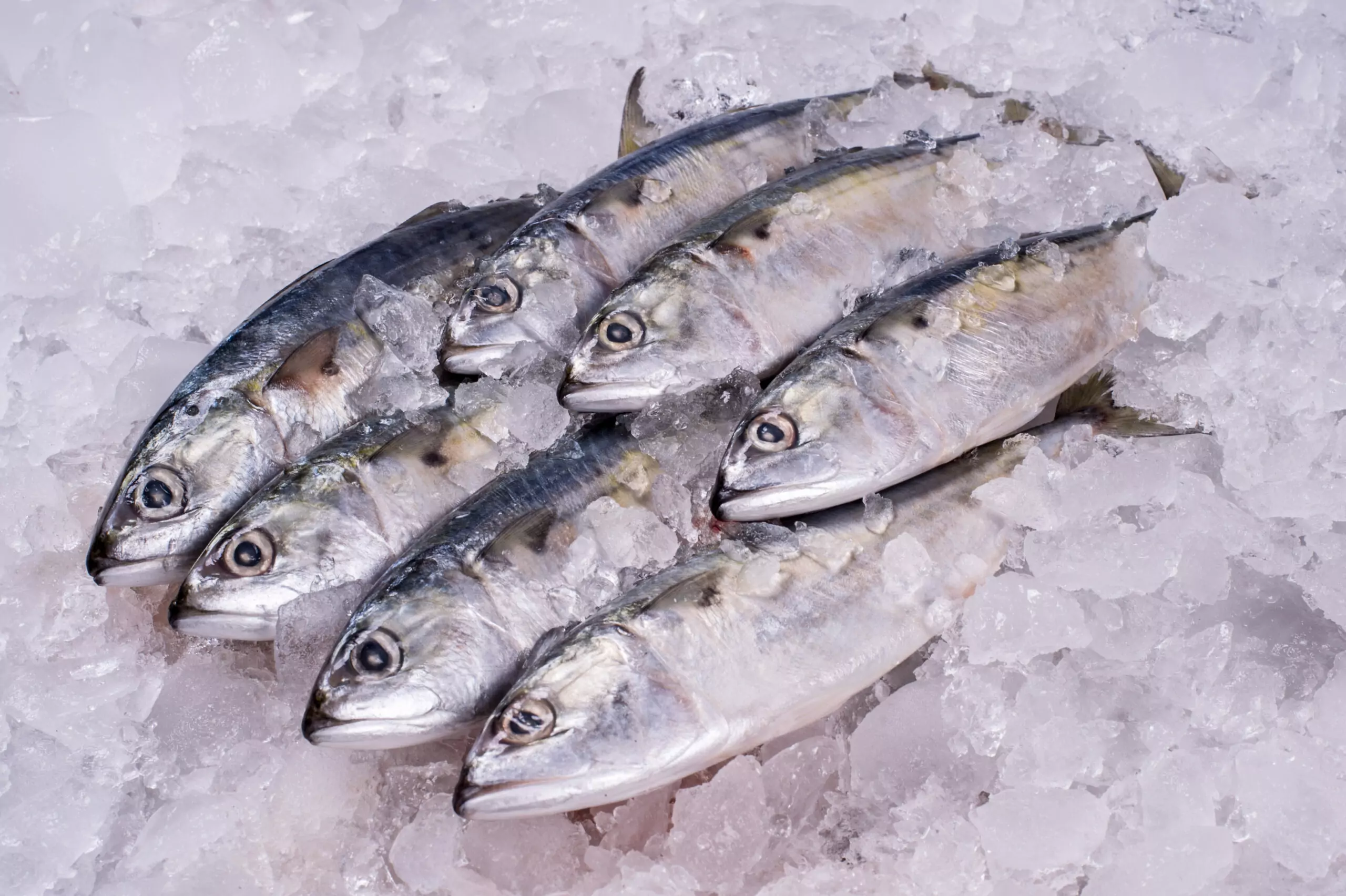
Last Monday evening I planned on preparing an amazing home-cooked dinner consisting of grilled albacore tuna steaks dressed with lemon and rosemary, accompanied by garlic asparagus and fingerling potatoes. I bought some beautiful, fresh tuna steaks and was ecstatic to begin preparing them. So you can imagine the sinking feeling I had when my partner pulled the tuna steaks out of the refrigerator, opened the plastic ziploc that contained them, and immediately plugged his nose with his fingertips and hollered, “Gross, they stink!” As I grabbed them from his hands, I caught a whiff of what he was smelling and breathed a sigh of relief–they weren’t at all spoiled–quite far from it.
Last Monday evening I planned on preparing an amazing home-cooked dinner consisting of grilled albacore tuna steaks dressed with lemon and rosemary, accompanied by garlic asparagus and fingerling potatoes. I had bought some beautiful, fresh tuna steaks and was ecstatic to begin preparing them. So you can imagine the sinking feeling I had when my partner pulled the tuna steaks out of the refrigerator, opened the plastic ziploc that contained them, and immediately plugged his nose with his fingertips and hollered, “Gross, they stink!” As I grabbed them from his hands, I caught a whiff of what he was smelling and breathed a sigh of relief–they weren’t at all spoiled–quite far from it. They simply had a pleasant smell (to me) reminiscent of seaweed.
Professionals in the seafood industry are intimately familiar with this fresh-but-slightly-oceany smell. We know exactly what our seafood should smell like during different stages of its freshness. However, many of our customers–and potential customers–don’t. Fresh seafood often has a distinct natural smell that many people dislike, or mistake for spoilage, so they don’t buy it. However, that smell can actually be reduced and even eliminated in just a simple step or two without compromising the quality of the item itself. I believe that we can change hesitant customers’ minds and make their tastebuds happy–with the right knowledge, terminology, and a touch of persuasion, your seafood clerks have the power to introduce them to a fresh new source of healthy protein.
The Science of Seafood Smells
The first step to talking confidently about smelly seafood is knowing the nitty gritty science behind it. Why does fish smell the way it does? It’s actually pretty simple. Most of our marketable fish comes from the ocean, and the ocean just happens to be chock full of salt. To keep all that salt from sucking the moisture out of their bodies, fish tissue contains something called trimethylamine oxide (TMAO). When a fish dies, bacteria immediately begin breaking down TMAO into trimethylamine (TMA), which results in the fishy smell. A fish can begin smelling even a couple hours after it’s caught! The TMA smell absolutely does not mean the fish is spoiled. It’s a harmless process that simply adds some ocean-y odor to our fresh seafood.
Of course, since the purpose of TMAO is to prevent osmosis in salty water, freshwater fish don’t tend to have the slight odor that ocean fish do. So if your customers just don’t want to put up with any fishy smells, simply direct them towards some freshwater catfish or tilapia.
Fielding Customer Questions: How Do I Get Rid of the Smell?
Fortunately for hard-core (and soon to be!) seafood enthusiasts, there are plenty of ways to reduce and even completely eliminate the smells that linger around seafood. We suggest training your seafood clerks, or even creating take-home seafood suggestion cards, to offer a few tips and recommendations on how to rid fresh seafood of any odor.
- Water! Just rinsing the outside of fish filets with water can wash away the TMA.
- Use acid–Acidic solutions cut TMA and render it odorless. Suggest to your customers that they soak their fish in lemon, tomato sauce, or vinegar before cooking. Acidic ingredients also make excellent marinades and cooking sauces, so they’re doubly effective!
- Milk–Yes, that’s right. Milk has an amazing protein called casein, which actually chemically bonds with TMA. Recommend your customers soak their fresh fish in some milk for 10-20 minutes.
Of course it’s important that customers don’t keep fish around that has actually spoiled. If fish smells like ammonia, it should be thrown out. The U.S. Food and Drug Administration recommends that refrigerated fresh fish be consumed within 48 hours.
After Cooking?
This is another deterrent to cooking seafood for some people. Fish can leave behind odors in the home after being cooked. Recommend to your customers any or all of the following:
- Leave a window open with a fan going during and for awhile after cooking
- Brew some coffee–that toasty aroma tends to temper fishy odors
- Take it outside–if the weather’s nice, grilling seafood outside on a barbeque is a tasty method of cooking that doesn’t stink up the house
- Bake seafood in the oven, which seals in most odors
- Try poaching–gently poaching fish in seasoned water is a great way to reduce fishy smells, as the water lets few odors escape
Can’t Handle Any Odor?
Fortunately, there are actually quite a few seafood options for those who want the tasty health benefits but don’t want to deal with any fishy aromas. Seafood in the form of canned, frozen, or already cooked fish and shellfish is convenient and won’t permeate the house with odor. Plus, your store may choose to offer sealed, pre-marinated, ready to cook options that pretty much cut out any fish odor.
Smelly but Healthy (and Delicious!)
Don’t let potential customers miss out on healthy, delicious seafood just because of a natural smell that’s easy to get rid of with a simple technique or two. Also remind customers that the fresher the seafood is, the less it will smell. Pucci Foods sells wholesale fresh and frozen seafood that’s minimally handled and straight from the fisherman.


